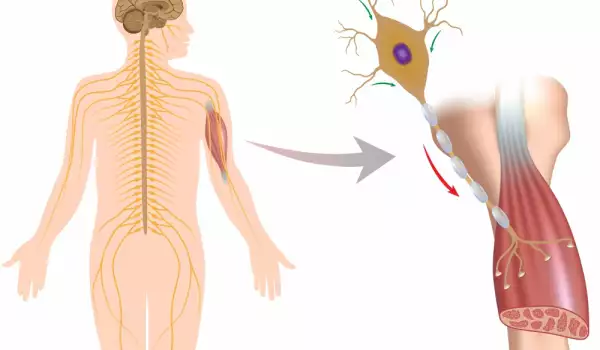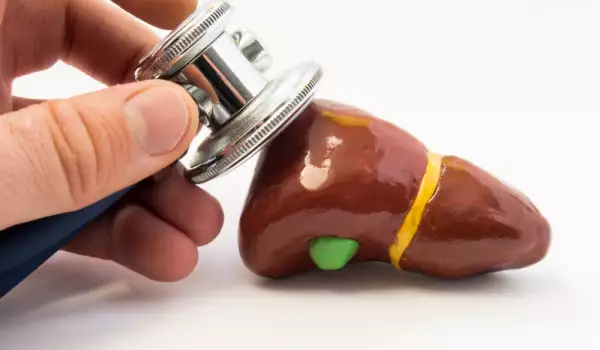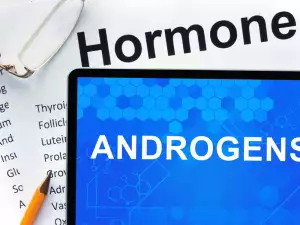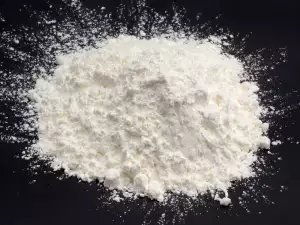Glycogen is a complex carbohydrate based on glucose, of animal origin. It is present in the bodies of humans and animals. It is a very interesting substance for dieters because of its main role - to accumulate energy, as well as for those interested in bodily processes and the functions of the main organs in the body.
It is interesting for them to learn that glycogen is contained in the cells of the body, but not in the brain. The brain does not have time to break it down into glucose, so it gets the glucose it needs directly from the blood.
It is important for those adhering to different dietary regimes to know that with a carbohydrate diet, the amount of glycogen in the liver can reach 6-8 percent by weight. When fasting for 1-2 days, this percentage drops to 0.1, because glycogen becomes a source of blood glucose.
In muscle glycogen is only 1 percent and provides the energy only for the contraction of the muscle, which means it is depleted during physical exertion, not during starvation.
Babies of mothers, who smoke, are born with a reduced level of glycogen in the liver. For them, glucogenesis is suppressed by tobacco smoke.
These brief facts show that glycogen is an important carbohydrate for life processes. It is useful to learn the most important things about it.
Essence of glycogen

The complex carbohydrate glycogen is contained in all cells, but most abundantly in those of the liver (hepatocytes), it is also present in muscle cells. It is inherently water soluble. Muscle glycogen provides glucose only for the functions of the muscles, while liver glycogen supplies glucose to all tissues and organs in the body. Interestingly, there is more glycogen in muscle than in liver simply, because of the difference in organ mass in favor of muscle.
When the accumulation of this complex carbohydrate increases greatly, pathological processes occur, leading to disruption of glucose metabolism. An example of glycogen storage is diabetes mellitus, which is not controlled by medication and diet. It causes a disturbance in glucose metabolism. Accumulation of glycogen also takes place in the epithelial cells of the kidney tubule, in the myocardial cells of the heart, in the beta cells of the pancreas and in the liver cells.
This process is reversible. Correction of hyperglycemia and increased excretion of glucose in the urine is necessary.
In genetic diseases there is a strong intracellular accumulation of glycogen. These processes are known as glycogenoses. Characteristic of these diseases is that they have a hereditary deficiency of some enzymes that are involved in the breakdown or synthesis of glycogen. Depending on the specific enzyme deficiency, 12 types of glycogenosis are distinguished.
Importance of glycogen
Glycogen has a central role in energy production processes at all body levels. In a resting state muscle glycogen is used for about 15-20 percent of the energy produced for needs. With a moderate load, 80-85 percent can be reached and the more the intensity of the load increases, the higher the percentage of glycogen utilization for the purpose. A decrease in glycogen leads to a feeling of fatigue.
Glycogen in the body

At any given time there is some amount of glucose in the blood. If a meal or exercise is skipped, its level begins to fall and along with it, the level of insulin in the blood decreases. Then the enzyme phosphorylase breaks down the glycogen to provide the body with the glucose it needs. It becomes the main energy source of the body.
The liver also releases glycogen in certain situations, for example:
- Under stress;
- In the morning, when glucose is elevated;
- To help the digestive processes;
- When the body requires more sugar in the blood - then the pancreas releases a hormone called glucagon and it converts glycogen into glucose.
Glycogen and nutrition
Food and physical effort affect the production of glycogen in the body. The low-carbohydrate diet gives particularly expressive results, because it limits the main source for the synthesis of glucose - carbohydrates.
The keto diet reduces carbohydrate intake to 5-10 percent of all food items, which results in ketosis. It burns fat to give energy to the body.
In the keto diet glycogen stores are sometimes severely depleted and this leads not only to fatigue, but also to clouding of consciousness, difficulty concentrating and others. Gradually, these symptoms decrease as the body's reserves are renewed.
With all diets, initially the weight drops sharply. Then it slowly starts to slow down. Glycogen also plays a role in this condition. At the beginning of the diet, it is quickly depleted and the body expels fluids. Over time, fluids are restored as a reserve in the body and weight is returned. The results of losing weight at the beginning of the diet are not due to burnt fat, but to the water expelled from the body.
Athletes often consume large amounts of carbohydrates before competition to increase their endurance. It's true that carbohydrates provide them with extra fuel, but this causes excessive water retention in the body, which leads to digestive problems.
Glycogen in diseases such as diabetes
When the body is healthy with higher blood sugar levels obtained from meals, the pancreas releases more insulin in response to increased glycogen. Insulin regulates blood sugar levels, prompting the liver and muscles to take in more glucose and turn it into glycogen for storage.
Diabetics cannot produce enough insulin or it is not absorbed well by the cells. Then the pancreas loses its ability to respond adequately to an increase in blood glucose. They are given the necessary insulin from the outside.
Glycogen deficiency, excess and nutrition

Excesses of glycogen in muscles reduce the efficiency of their functions and lead to the appearance of fatty tissue. Athletes often accumulate glycogen in their muscles to a greater extent than others.
For other people, the accumulation of excess glycogen leads to reduced muscle function and excess weight.
Glycogen deficiency has an adverse effect on the body. Its manifestations are lethargy, apathy, reduced immunity, impaired memory, weight loss, reduced muscle tonicity and depressive states.
The availability of dietary glycogen, which is consumed can be regulated.
- In case of excess, foods with more carbohydrates should be limited and proteins should be consumed;
- In case of deficiency, foods containing glycogen should be consumed. From fruit, these are figs, grapes, apples, oranges, persimmons, peaches, kiwis, mangoes. From vegetables, carrots and beets are highly recommended, as are flour and legumes. Sweet things and honey are also a good idea.
Doses of glycogen needed by the body
According to experts, the necessary daily dose is 100 milligrams of glycogen with a normal rhythm of life. With physical and mental stress, this need increases.
Glycogen can practically be defined as the reserve carbohydrate in the human body, belonging to polysaccharides. The term glucogen names a protein hormone produced by the pancreas.
















Comments